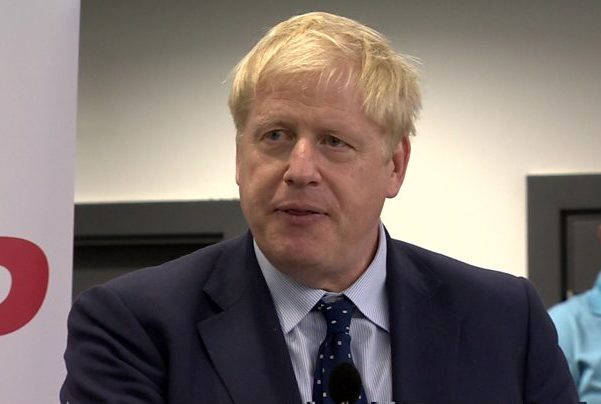A Brexit deal has been agreed between UK and EU negotiating teams before a meeting of European leaders in Brussels.
Prime Minister Boris Johnson tweeted: “We’ve got a great new deal that takes back control.”
The two sides have been working on the legal text of a deal, but it will still need the approval of both the UK and European parliaments.
The DUP has said it will not vote for the deal, potentially scuppering it.
In a statement, the Northern Irish party, which the government relies on for support in key votes, said: “These proposals are not, in our view, beneficial to the economic well-being of Northern Ireland and they undermine the integrity of the Union.”
Labour leader Jeremy Corbyn said the deal sounded “even worse” than what was negotiated by the PM’s predecessor, Theresa May, and “should be rejected” by MPs.
But European Commission President Jean-Claude Juncker said it was a “fair and balanced agreement”.
Both he and Mr Johnson have urged their respective parliaments to back the deal.
No 10 sources have told the BBC’s political editor Laura Kuenssberg that Mr Johnson will later ask EU leaders to reject requests for an extension to the Brexit deadline of 31 October.
MPs passed a law in September that requires the PM to request an extension on 19 October if Parliament has not agreed a deal or backed leaving without a deal by that date.
No 10 source says Johnson will ask leaders to rule out a further delay – he’s expected to ask them to make clear it’s ‘the new deal or no deal but no delays’ he will tell EU leaders
— Laura Kuenssberg (@bbclaurak) October 17, 2019
MPs will later vote on whether to hold an extra sitting in the Commons on Saturday to discuss the next steps.
Cabinet Office minister Michael Gove said if the sitting was approved, the government would hold a vote on the deal.
He said he was “not contemplating defeat”, but if the plan did not get the backing of MPs, the alternative was leaving without a deal.
The DUP has been in an agreement with the Conservative Party since the 2017 election, which, in the past, gave the government a working majority.
But after resignations and the removal of the party whip from more than 20 Tory MPs in recent weeks, Mr Johnson now could face a tough battle to get his deal through Parliament.
Mr Barnier said he and Mr Juncker had been told by the PM “he has faith in his ability to convince the majority he needs in the House of Commons”.



